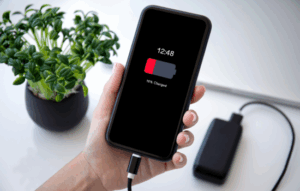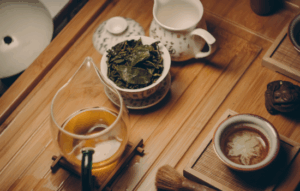Advertisements
Featured Infusions to Combat Stress and Anxiety
Below are some of the most effective and popular natural infusions, known for their relaxing and calming properties:
Advertisements
Chamomile Tea
Chamomile tea is one of the most traditional natural remedies for relieving stress. With a smooth and delicate flavor, this infusion is known for its ability to induce a state of relaxation.
Chamomile contains compounds such as apigenin, which binds to specific receptors in the brain to generate a sedative effect. It's ideal to take in the evening or before bed, helping to improve sleep quality and reduce anxiety accumulated during the day.
Lavender Tea
Known for its comforting aroma, lavender is widely used to reduce irritability and promote calm. A lavender infusion can lower cortisol levels and improve mood, making it an excellent choice for meditation or relaxation after a stressful day. Additionally, its antioxidant properties strengthen the body's protection against stress-induced damage.
Advertisements
See also
- TeaMaster: The Ultimate App for Unlimited Tea Recipes
- Turn your cell phone into a projector
- Discover the Secret to a Full Life
- The Best Apps to Simulate Life Insurance with AI
- Learn Martial Arts: From Judo to Kata Karate Shotokan
- Steeped: The Ultimate Unlimited Tea Recipes App
Valerian Tea
Valerian is famous for its sedative effects and ability to improve sleep. This infusion is especially helpful for those who suffer from insomnia or chronic anxiety. Valerian root contains compounds that increase the activity of the neurotransmitter GABA, reducing neuronal excitation and allowing the mind to relax. Drinking a valerian infusion before bed may be the key to achieving deep, restful sleep.
Combined Infusions
In addition to individual infusions, many preparations combine several herbs to enhance their effects. Some recommended blends include:
- Chamomile, Lavender and Linden: A perfect combination to calm the mind and prepare the body for a peaceful rest.
- Passionflower, Lemon Balm and Mint: This blend balances the nervous system and refreshes, ideal for those moments when you need a boost of serenity.
Strategies to Integrate Infusions into Your Daily Life
The positive impact of herbal teas on reducing stress and anxiety is enhanced when they are regularly integrated into your daily routine. Here are some recommendations to help you achieve this:
Establish a Tea Ritual
Setting aside a specific time to prepare and enjoy a cup of tea can become a transformative ritual. This moment of pause allows you to disconnect from daily demands and focus on self-care. Some suggestions include:
- Tomorrow: Start your day with an infusion that awakens your senses and activates your metabolism, like an energizing blend.
- Noon: During the day, set aside a few minutes for a relaxing cup of tea to help you recharge.
- Evening: End the day with a sedative infusion, such as valerian, to facilitate sleep and promote restful sleep.
Create an Enabling Environment
The environment in which you enjoy your tea significantly influences its effect. Create a comfortable and relaxing space in your home. You can decorate a corner with soft lighting, instrumental music, and natural elements like plants or candles. A calm environment will help you maximize the benefits of your tea and turn your ritual into a sacred moment of self-care.
Experiment and Personalize Your Recipes
Don't limit yourself to predetermined recipes; the diversity of ingredients and combinations gives you the opportunity to experiment. Try varying the quantities, adding a touch of honey, lemon, ginger, or cinnamon, and discover which blends best suit your mood. Keeping a herbal tea journal can be a useful tool for recording your experiences and adjusting recipes to suit your personal needs.
Complement with Other Wellness Practices
Tea consumption can be effectively complemented with other relaxation techniques. Incorporate activities such as meditation, breathing exercises, or a short yoga session. These practices, combined with the tea ritual, can create a synergistic effect that further reduces stress levels and improves your overall well-being.
Share your experience
Sharing tea time with friends or family can enrich your experience. Organize get-togethers where everyone can contribute their favorite recipe, exchange tips, and enjoy a relaxed conversation. This exchange will not only allow you to learn new techniques but will also strengthen your social ties, which is essential for good mental health.
Scientific Evidence: Supporting the Benefits of Infusions
Numerous studies have demonstrated the effectiveness of natural teas in reducing stress and anxiety. Research on chamomile has shown that its compounds can interact with specific receptors in the brain, generating a sedative effect. Similarly, lavender has been associated with decreased cortisol levels and improved mood. Clinical trials on valerian have shown improvements in sleep quality and a reduction in anxiety in individuals who consume it regularly.
These scientific findings not only corroborate the traditional use of herbal teas, but also offer a solid basis for incorporating them as part of a comprehensive approach to stress management. The combination of calming properties and antioxidant effects makes these teas a powerful tool for counteracting the harmful effects of chronic stress.
Impact on Comprehensive Health and Well-being
Regular consumption of natural infusions has positive effects on multiple areas of health:
Strengthening the Immune System
The antioxidants present in many herbs help protect the body against cellular damage and strengthen the immune system. Reducing stress promotes hormonal balance, which improves the body's ability to fight disease.
Improved Digestive Health
Infusions such as chamomile tea have anti-inflammatory and carminative properties, helping to relieve digestive problems and promoting better nutrient absorption. Healthy digestion is essential for maintaining overall well-being and reducing discomfort caused by stress.
Optimizing Sleep Quality
Sleep is essential for the regeneration process of the body and mind. Teas with sedative properties, such as valerian, facilitate sleep, which translates into better quality rest. Restful sleep helps reduce anxiety and improve concentration and productivity during the day.
Emotional Balance and Anxiety Reduction
The ritual of drinking a cup of tea is associated with improved mood and decreased anxiety levels. This act of self-care not only relaxes the body but also allows for a space for reflection and internal connection, essential for maintaining emotional balance.




